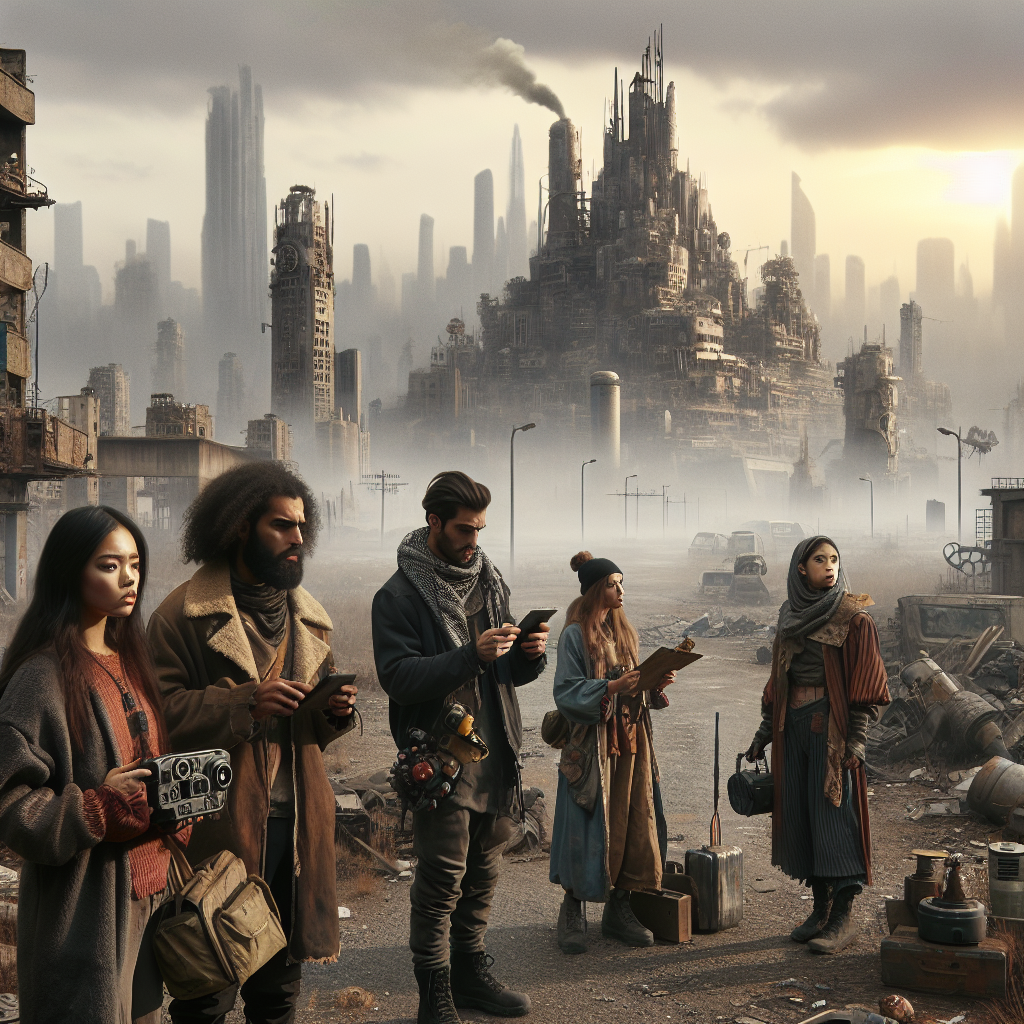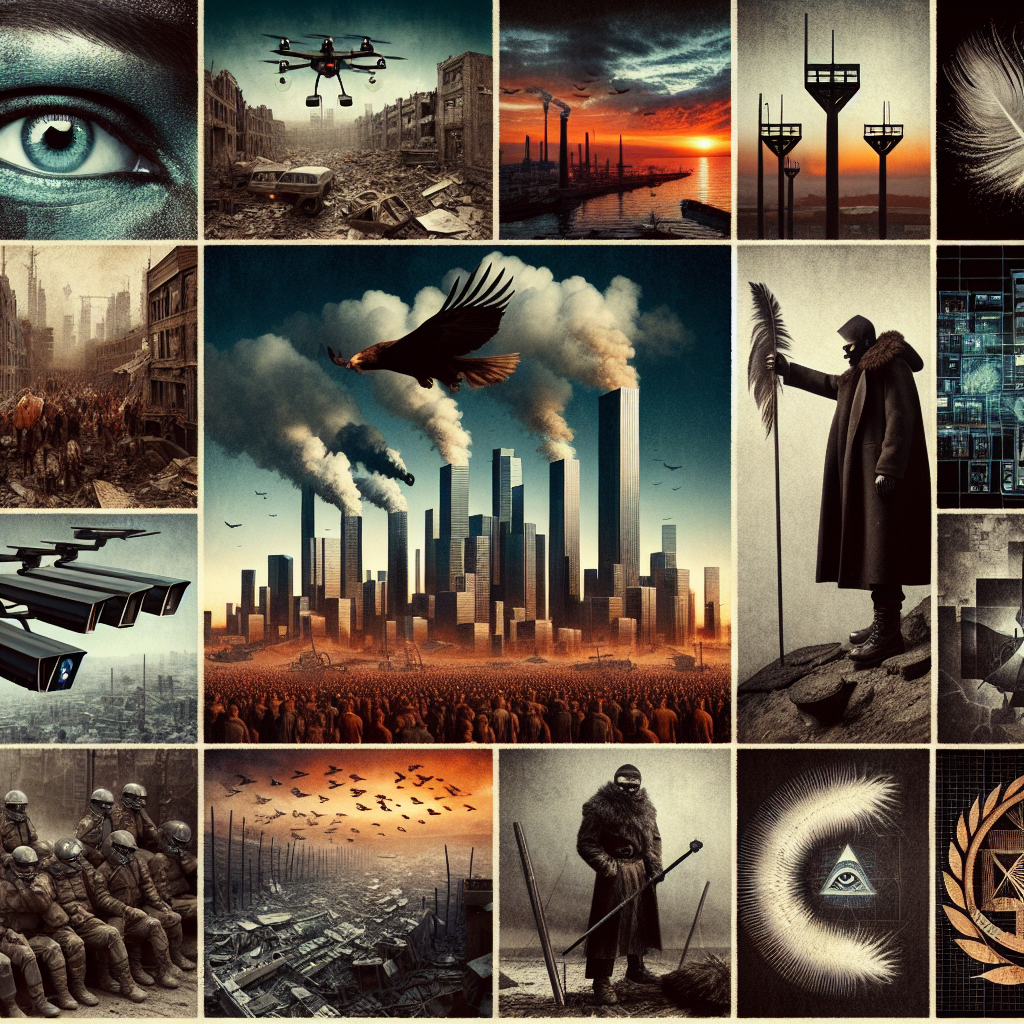As an Amazon Associate I earn from qualifying purchases.
Exploring the World of Dystopian Fiction: A Journey Through Desolation and Hope

Dystopian fiction, a genre that explores the grim shadows of imagined futures, has captivated readers for over a century. These narratives, set in worlds where societies have often collapsed under the weight of their own failings, serve as both a warning and a reflection of contemporary anxieties. From totalitarian regimes to environmental catastrophes, dystopian fiction examines the consequences of societal flaws, making it a compelling genre for readers and writers alike. This article delves into the most popular dystopian novels, exploring their themes, impacts, and why they resonate so deeply with readers.
The Allure of Dystopian Worlds
The appeal of dystopian fiction lies in its ability to mirror our deepest fears about the future. It presents a reality where the consequences of human action or inaction have been pushed to their extremes. These narratives often explore themes such as:
- Government control and totalitarianism
- Environmental degradation and climate change
- Technological overreach and dehumanization
- Social inequality and injustice
Through these themes, dystopian fiction challenges readers to reflect on current issues and consider the direction in which we are headed. It's a genre that not only entertains but also educates and provokes thought, making it a powerful tool for societal critique.
Titans of Dystopian Fiction
Several dystopian novels have risen to prominence, becoming cornerstones of the genre. These works have not only achieved critical acclaim but have also sparked discussions, adaptations, and even movements. Here are some of the most influential dystopian novels:
George Orwell's “1984”
Published in 1949, “1984” is a seminal work that explores the dangers of totalitarianism. Orwell's vision of a world under constant surveillance by “Big Brother” has become a symbol of government overreach. The novel's themes of censorship, surveillance, and the manipulation of truth are eerily relevant in today's digital age, making “1984” a timeless piece of dystopian literature.
Aldous Huxley's “Brave New World”
“Brave New World,” published in 1932, presents a society that has achieved apparent harmony through genetic engineering, indoctrination, and the use of a happiness-inducing drug called “Soma.” Huxley's work is a poignant commentary on consumerism, freedom, and the pursuit of happiness, raising questions about the cost of societal “perfection.”
Margaret Atwood's “The Handmaid's Tale”
First published in 1985, “The Handmaid's Tale” explores themes of patriarchy, religion, and female autonomy. Set in the theocratic dictatorship of Gilead, the novel follows the story of Offred, a Handmaid who serves as a concubine in a world where women's rights are severely restricted. Atwood's work is a powerful exploration of gender and power dynamics, resonating with contemporary discussions on women's rights and autonomy.
Suzanne Collins' “The Hunger Games”
“The Hunger Games” trilogy, which began in 2008, brought dystopian fiction to a new generation of readers. Set in the post-apocalyptic nation of Panem, the series follows Katniss Everdeen as she participates in a televised death match. Collins' work examines themes of survival, tyranny, and resistance, capturing the imaginations of young readers and sparking a resurgence in the popularity of dystopian fiction.
The Impact of Dystopian Fiction
Dystopian fiction has had a profound impact on both literature and society. These novels have:
- Sparked important conversations about political and social issues
- Inspired adaptations in film, television, and theater
- Influenced other genres, including science fiction and young adult fiction
- Encouraged readers to engage with complex ethical and philosophical questions
By presenting exaggerated versions of reality, dystopian novels encourage readers to examine their own world more critically. They serve as a reminder of what could happen if humanity's darker tendencies are left unchecked, making them an essential part of the literary landscape.
Why Dystopian Fiction Resonates
The enduring popularity of dystopian fiction can be attributed to its ability to adapt and reflect the anxieties of any given era. Whether it's the threat of nuclear war, the rise of surveillance technology, or concerns about environmental degradation, dystopian novels tap into the collective fears of society. They offer a space to explore worst-case scenarios, providing a cathartic outlet for readers. Moreover, at the heart of many dystopian narratives is a message of hope—a belief in the resilience of the human spirit and the possibility of change.
Conclusion: A Reflection on Dystopian Worlds
Dystopian fiction serves as a mirror, reflecting our darkest fears and highest hopes for the future. Through the exploration of totalitarian regimes, environmental disasters, and societal collapse, these narratives challenge us to reflect on our values and the direction of our society. The most popular dystopian novels—such as “1984,” “Brave New World,” “The Handmaid's Tale,” and “The Hunger Games”—have left an indelible mark on literature and culture, sparking discussions, debates, and even movements. As we navigate the complexities of the 21st century, dystopian fiction remains as relevant as ever, reminding us of the power of literature to provoke thought, inspire change, and imagine new possibilities for our world.
Amazon and the Amazon logo are trademarks of Amazon.com, Inc, or its affiliates.






















































